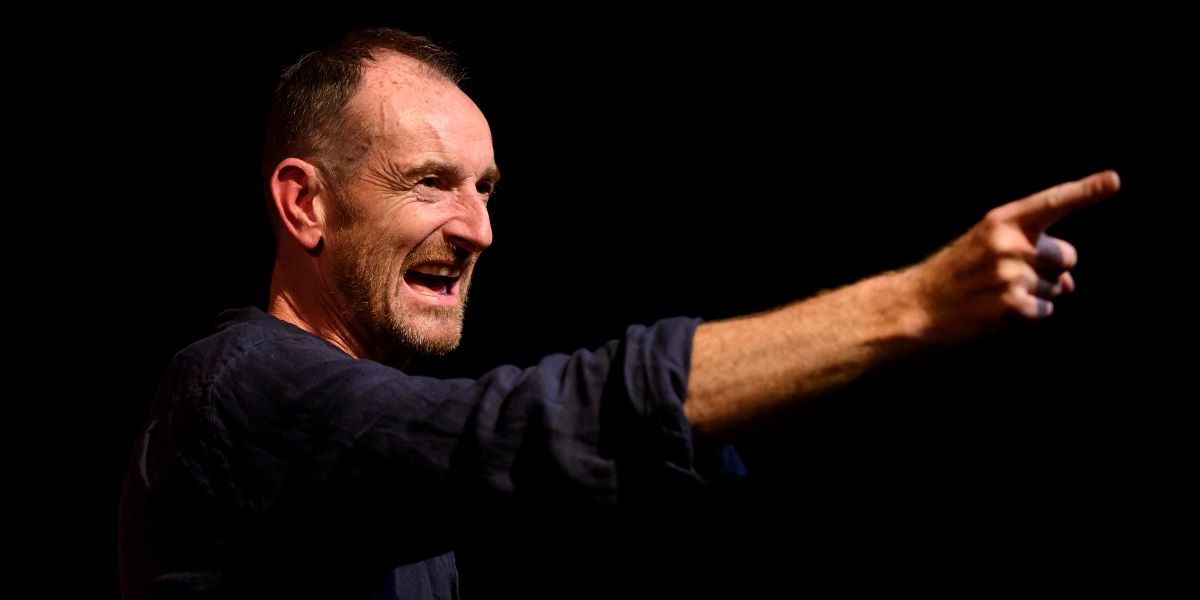This play is the result of a trip to Afghanistan made in 2002 by the writer and his friend, Sam Maynard, a feature photographer. It tells the story of how the trip came to happen, what happened to Naylor and Maynard in the war zone, and what happened to the material they brought home after the trip. It is funny, angry and shocking in turns and it makes for a compelling 75 minutes in Studio 2 at the Arcola, with the solo performance of Naylor fizzing with life. But it is impossible to describe it as a thorough success – it is less than the sum of its parts with some difficult questions asked but left unanswered at the end.
The USA and its allies invaded Afghanistan in late 2001 because the Taliban government refused to surrender Osama Bin Laden whose group was behind the 9/11 attacks on the USA. Though the Taliban were driven out of the cities, and a new government was installed in Kabul, they and their allies remained active, operating from bases in the remoter mountain areas and from Pakistan. Assassinations and car bomb attacks were common so it was perhaps a fool-hardy decision for Naylor and Maynard to fly to Kabul in 2002 for the purposes of “researching a comedy” for the Edinburgh Festival Fringe. Their Afghan minder, arranged through the BBC, turned out to be almost as naïve as they were.
To give too much information about what happened to them in Kabul would be a spoiler so I will not describe their adventures, though I have to say that this middle part of the play is by far the most compelling section and carries the emotional punch of the performance. The first part in which Naylor describes how his promising early career as a writer and comedian was derailed by two external events is performed with gusto but only tangentially related to the core of the piece – apart from the realisation that he wishes to highlight the frightening gulf between what journalists see and write about and what news outlets are willing to publish. But that is hardly a new insight.
And the final part of the play, which involves Naylor’s struggles to develop a format – and find an outlet – for the important story he wants to tell, left me feeling uncomfortable. He raises important issues about whether war stories should be about the observers or about those who have suffered – as fighters or as civilian casualties. He asks if we can ever trust history written by the victors. But his answer to this dilemma, though powerful in its impact, is not a solution I find convincing. And it is difficult to understand why there is almost no reference to the resurgence of the Taliban given that this version of the play is being performed in London only eighteen months after the Taliban have regained control of Afghanistan
Naylor is a fluent writer and an accomplished performer. In a 75 minute long one-man show, his changes of pace, his command of various voices, his admirable righteous indignation and his readiness to poke fun at himself, all entertain. The production is sharp and fast moving – the lighting is particularly effective. The photographs, taken by Maynard during the fateful trip in 2002, are extraordinary and provide just the backdrop to the action that Naylor anticipates before the journey. Even so, I ended feeling uneasy that the struggles of a British writer to tell his story seemed more prominent in this play than the suffering of the victims of the war.

